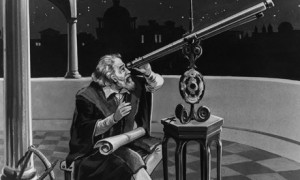Transpersonal Psychology and redemption
Near the end of Maslow’s life, he began to think about a new kind of psychology that goes beyond personal experience and includes a fourth force which would be the spiritual aspects of human nature. He believed that humanistic and third-force psychology were a preparation for this acclaimed fourth force. It continues to address human needs and identity, but it goes beyond those things. He suggested that this would offer a tangible and effective satisfaction of the frustration that many desperate people have. This gives promise of life and value, instead of confusion and worthlessness.
This perfectly fits with the idea of redemption! Because of the blood we are sons and daughters of God. How can we worry about who we are, what others think, and our needs if we come to a grasp on the idea that salvation doesn’t just mean we are going to heaven, but it means that heaven is coming into us through a relationship with the holy spirit?!? There can be no doubt, hopelessness, or fear because the devil has already lost. We have been clothed by the father in purity and that brings us back to the identity of who we were created to be from the beginning, before the fall. If we focus on our true identity, sons and daughters that already please God because of his grace, we deny ourselves and everything God has we receive because we are his and ALREADY seated in the throne room of grace. We have his mind because of the holy spirit. My goodness, there cannot be doubt or fear in a Christian who knows their true identity. We weren’t called to believe in God and then live in hell until we get to heaven. We were called to die to ourselves, take up our cross and follow him while letting heaven manifest through us because of our relationship with the holy spirit!! People need to know how amazing they are because everyone was created in the image of God and everyone was washed by the blood. Maslow is right! People are broken, confused, lost, seeking their true identity, and the fourth factor of psychology brings freedom! The truth sets us free and gives us life and value; just like Maslow said, just like Jesus said. Jesus is the way, the truth, the life, whosoever believes in him will not perish but have eternal life. Deny yourself, learn your identity, and receive the father’s love. Seriously, almost every Christian has a problem with themselves. Once we start believing that the cross is enough this world is going to change!





Zach Stromberg on Rogerian Thoughts and Views
3:19 pm, 12.02.13
Yeah great ideas on Rogers. The whole need for affirmation is something that is very natural and something I have (as well as probably everyone) struggled with my whole life! Seriously, once we understand in our hearts that Jesus is enough, offense goes away and we start doing things out of love for others instead of to bring ourselves glory. Thankfully with a fall has come a redemption!
Zach Stromberg on B.F. Skinner
3:10 pm, 12.02.13
Interesting ideas Lindsay!! I agree with you, Skinner could definitely fit under the category of creation because of his hunger for understanding why we are the way we are. In that includes, marveling at and unraveling the beauty of creation. I’m sure he fits under the category of the fall too because behaviorism definitely can be focused on reactions, behaviors, and rewards that are destructive or immoral.
Zach Stromberg on Redemption & unconditional positive regard
3:05 pm, 12.02.13
Great points Rebecca! It’s an interesting idea of labeling people and determining their worth. Like you said, that is why redemption is beautiful. Because he knew what he was doing, each one of us is worth heaven giving up so much for us! I can’t really think of something that could possibly give us more value. Jesus and unconditional positive regard go hand in hand haha.
Zach Stromberg on Jung
9:15 pm, 11.17.13
Interesting thoughts! Thankfully Jesus is the answer that we need. We never will understand the complete fullness of God, but thankfully we have all of eternity to live with him. There is a definite fall, and things are complex, but the model of salvation/Jesus is simple, powerful, and deeply interconnected at the same time. As we continue a relationship with the Lord our hearts change and the answers we seek become natural reflections of our heart’s aligning with his!
Zach Stromberg on Breaking habits & Redemption
9:02 pm, 11.17.13
Great reflection Rebecca! Freedom from “old habits,” fear, and lies through redemption is such a powerful concept. We get to die to ourselves and surrender our failures to seek restoration through grace. In response to Levi, it is an interesting concept that we are both servants of the lord and his children who can walk in confidence and authority. We are seated in heavenly places, on a throne of grace in a sense (eph 2), so we are of the lord and we walk in freedom and authority in his power.
Zach Stromberg on The Fall of Reinforcement
8:53 pm, 11.17.13
It definitely is not surprising that culture and society influence and reinforce us. Sadly, like you’ve said society and people are broken!!! They are seeking affirmation and putting value in places that are simply shallow and not fulfilling for more than a brief moment. Culture is set by a standard of these rich and famous and it can negatively impact society because people want to change to be like them, and then they are reinforced by their peers.
Zach Stromberg on Gestalt Psychology and The Fall
9:29 pm, 11.01.13
Jenny, I also agree and like the way you have shown that perceptions and attitudes set the foundation and tone for our reaction and understanding of situations. Thankfully, there are strong and encouraging people like you who encourage and speak truth into people to give them an optimistic and freeing perception on overcoming the struggles they have (in the name of Jesus, obviously haha)!
Zach Stromberg on Gestalt way of Thinking
9:24 pm, 11.01.13
Critical thinking is definitely hard to put in one specific category. Even so I like that you have compared it to restoration. We have a natural desire and need to overcome obstacles and work through problems. Thankfully we have these abilities and can overcome and live in freedom!
Zach Stromberg on New creation
9:17 pm, 11.01.13
Interesting thoughts Anna!! I think that religion in itself is adaptive, clearly, as we have seen the different religious and enlightenment movements throughout history. However, when the focus is on living in the spirit and accepting the love and grace of Christ I don’t think it should be as dramatically fluctuating as it has been.
Zach Stromberg on Hemholtz
9:10 pm, 10.20.13
I agree with you in the idea that he takes away the beauty of a soul. There is no creativity or freedom, and in that case what is truth besides proven experimentation? However, the understanding of humans in this mechanical sense can be linked to creation too because of the perfection of the human body. What an awe-inspiring creation, indeed.